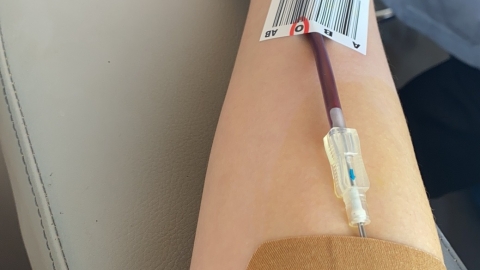Can individuals with "small three positives" donate blood?
Generally, the term "small three positives" refers to the immunological markers of the hepatitis B virus in patients with chronic hepatitis B or hepatitis B virus carriers: specifically, the presence of hepatitis B surface antigen, hepatitis B e antibody, and hepatitis B core antibody. Individuals with these markers are generally not allowed to donate blood. Detailed explanation is as follows:

Patients with "small three positives" carry the hepatitis B virus in their bodies, and viral particles may exist in their blood. If blood containing the virus is transfused into a recipient, it may transmit the hepatitis B virus and increase the recipient's risk of hepatitis B infection. To ensure blood safety and prevent transmission of diseases through blood, blood donation standards clearly state that individuals with "small three positives" are not allowed to donate blood.
Even if a patient with "small three positives" has normal liver function and low viral load, and appears to have a stable condition on the surface, the blood may still be infectious. Blood donation organizations, adhering to the principle of being responsible for recipients' health, do not allow anyone diagnosed with "small three positives" to donate blood regardless of the severity of their condition. This is a measure to control blood-borne disease transmission at the source.
Individuals with "small three positives" should undergo regular liver function and hepatitis B viral load tests, follow medical advice for proper disease management, and under no circumstances attempt to conceal their condition to donate blood, so as to avoid posing a risk to others' health.





